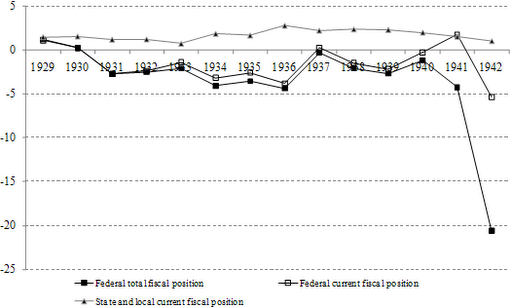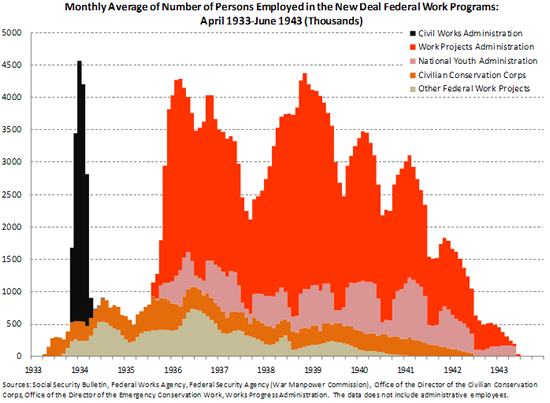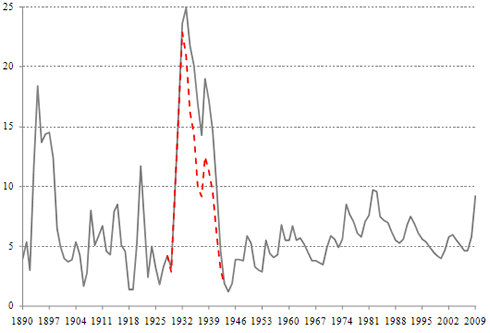By Marshall Auerback and L. Randall Wray
The commentary in the aftermath of President Obama’s announced tax deal with the GOP has been both predictable and, for the most part, misconceived. Leaving aside the issues of income inequality (which we discussed in a previous post), the more predominant critique (especially from the “deficit dove Left”) focuses on the proposed temporary payroll tax cut and the adverse implications that such a cut implies for budget deficits and for Social Security’s longer term “solvency”. Payroll tax cuts are seen by many as part of a bigger plot by Republicans to destroy Social Security’s finances or permanently fund it with general revenues rather than allowing the payroll tax to be re-imposed at the end of the tax “holiday”. One staffer in Congress expressed the concern that funding Social Security with general revenues was part of a bigger plan to destroy it by converting Social Security into a welfare program, rather than an earned benefit.
A related concern deals with the overall solvency issue and is best expressed by Robert Kuttner, who has argued: “The deficit commission appointed by the President has called for an increase in the retirement age, as well as other cuts in benefits over time. And the deal that Obama made with the Republicans just gave deficit hawks new ammunition by increasing the projected deficit by nearly $900 billion over a decade. Social Security will be in the cross-hairs.”
Kuttner’s views reflect a fairly typical concern of deficit doves, who worry relentlessly about the public debt to GDP ratio because they assume that the “credibility” of the government debt will be compromised as we lose the “confidence” of the markets. Even President Obama has argued that deficits today leave our grandchildren with a heavy burden, which is why he is already proposing budget freezes for the federal employees next year. Other deficit doves are somewhat more tolerant of near-term budget shortfalls than our President, but they still worry about long term pain. That pain is said to be compounded by the imminent retirement of baby-boomers, which will threaten the “solvency” of Social Security. Thus, it is all the more necessary to get the budget “under control” as quickly as possible and payroll tax cuts which, according to this view, “fund” Social Security, cannot and should not be cut, even though these kinds of tax cuts would constitute a highly effective form of fiscal stimulus and mitigate the aggregate demand shortfall which is the core of the problem in the first place.
Yet again, we see the dangers of accepting the neo-liberal paradigm, which holds that government spending is limited by tax collections or bond sales. It represents a form of fiscal chastity in which (much like St. Augustine), we acknowledge the need to become “fiscally chaste, but not yet”. To which the Right has a legitimate rejoinder: if deficits are bad long term, then why not start to deal with them in the short term, to mitigate the longer term damage?
The truth of the matter is that payroll taxes do not fund the program. Social Security was constructed this way to buttress its political legitimacy against widespread charges of “socialism” in the 1930s, but the reality is that the federal government has been (since the inception of the program and well before) the sole issuer of our currency, and the dollar, which is nothing more than the government’s IOU, is always accepted in payment as such. Government actually spends by crediting bank deposits (and simultaneously crediting the reserves of those banks). For more on this see here.
The “government as household” analogy, which persistently interposes itself on the deficit dove or hawk paradigm, is fundamentally flawed because no household (or firm) is able to spend by crediting bank deposits and reserves, or by issuing currency. Households and firms can spend by going into debt, but the debt must be serviced with the debt of another—usually a bank debt. Sovereign government only makes payments—including interest payments on its debt—by issuing its own IOU. This is why it is ludicrous to speak of Social Security as some sort of “Ponzi scheme”, because unlike private debtors the sovereign government can always make payments and service debt by crediting bank accounts.
The Social Security program has run large budget surpluses since the early 1980s; Treasury then matches those surpluses with an equivalent amount of treasury debt—and then credits interest to the Social Security Trust Fund account. In the future, the program will turn the bonds back to the treasury when Social Security revenues are less than its benefit payments. Social Security’s treasury holdings in reality amount to no more than an internal record keeping—a sort of reminder that someday the treasury will cover Social Security’s shortfall. It will do that the same way it pays retirement benefits now—by crediting the bank accounts of recipients.
Even by Federal Reserve Chairman Ben Bernanke’s own admission, neither taxes nor bonds should impose any technical constraints to spending. Yet many of the same figures who acknowledge this reality, such as Bernanke, still insist on discussing issues such as the budget deficit (or, more specifically, Social Security “shortfalls”) within the constructs of a financing constraint. They seem to recognize that the Treasury/Federal Reserve finances spending or purchases by electronically injecting reserves into the system and that there is no limit to its ability to do so. On the other hand, most (including Bernanke) still argue that somehow taxes are necessary to fill the government’s coffers, and that any shortfall in revenue collections would cause the government to deplete private savings through borrowing (domestically or abroad) to finance the expenditures of something like Social Security. In so doing, Bernanke misstates (perhaps purposely) the reality of how a government actually spends and feeds the myth that our taxes fund our federal government’s spending programs.
In response to this fear, ironically, the reality is that government spending cuts proposed to “ensure” Social Security’s “solvency” in the future, work in exactly the opposite way to what the mainstream neo-liberals claim. Today’s budget cuts actually generate higher unemployment, poorer educational facilities, increased malnutrition, etc. They will impose real burdens on our children, who will be less educated, less skilled, less experienced, and have lower income as a whole as a result of the fiscal austerity and will have less real income later, which of course is no means to solve a solvency issue if that is in fact the real issue. In any case, government cannot financially provision in advance for future benefit payments. Indeed, attempts to do so via the encouragement of deficit cuts today will simply exacerbate the “dependency” problem implied by ageing demographics.
In that regard, it is worthwhile reading Don Peck’s story in a recent Atlantic Magazine: “How a New Jobless Era will Transform America” as well as Edward Luce’s recent account of the crisis of middle class America in the Financial Times. Both recount what are undoubtedly the real intergenerational issues which affect demand, future economic growth and employment. The retired and retiring baby boomers want their high nominal fixed incomes plus purchasing power preservation (if not deflation) now and until the day they die.
The youth want jobs and the prospects of a life worth living. The fiscal rectitude wing is literally strangling the baby in the crib today by denying a sensible fiscal response for the current generation’s plight, while hyperventilating that fiscal deficits will do the strangulation of the next generation tomorrow. All of which exacerbates a problem of economies facing intense global headwinds from private sector deleveraging.
Maximizing employment and output in each period is a necessary condition for maximizing long-term growth. The emphasis in the fiscal hawk intergenerational debate is on the adverse demographics and they suggest that we have to lift labor force participation by older workers—for example by postponing retirement. Perhaps, but this is contrary to current government policies which reduces job opportunities for older male workers by refusing to deal with the rising unemployment. To us, it makes far more sense to eliminate unemployment of the pre-retirement crowd—to produce the goods and services our retirees need. If it turns out that is not enough—that it does not produce enough goods and services for the retired as well as the pre-retired—then at that point it will be useful to encourage older people to remain in the labor force.
What is required is an aggressive fiscal policy today to establish effective demand (as well as facilitating ongoing private sector financial deleveraging). Constraints should be viewed from an inflationary perspective, rather than through the “solvency” paradigm. If total spending in the economy including the rising pension and health care spending exceeds the real capacity of the economy to meet this demand by supplying output then inflation becomes the issue, not national insolvency.
By the same token, the purpose of the payroll tax is NOT to “fund” a “pay as you go” scheme, but to prevent wage earners from consuming all the output, so something is left for those who do not work. But at less than full employment, we do not need to do that since all we need to do is put more people to work to produce Winnebagos (etc) for the elderly. If we should ever get to full employment, then we will need a tax. But all the evidence is that the US fiscal stance is set far too tight–anytime we get nearer to full employment, tax revenue literally explodes, growing above 15% per year.
And that is why we do not fear a payroll tax holiday—we need to further loosen the fiscal stance. And once Americans get used to that holiday we certainly do hope that they will insist on making it permanent. Goodbye and good riddance to the payroll tax—a poorly designed tax by any measure. Why discourage hiring and employment by imposing a “tax wedge” (as supply-siders call it), increasing the cost of hiring a worker and reducing take-home pay? Further, the tax is regressive—lower rates for those at the top. For the vast majority of Americans, the payroll tax takes far more income than the federal income tax. And why should only wage earners “share the burden” of supporting retirees? Remember, the purpose of the tax is to reduce consumption by income earners, to leave more goods and services for retirees. If that is the case, why exempt the rentier class (that lives on interest, rent, and profits) from this burden? Especially as the wage share has fallen substantially (and is projected to continue to fall for decades—which accounts for much of the future Social Security “shortfall” that intergenerational warriors are so concerned about). If we need to reduce consumption of income earners to leave more for retirees, then we should tax all forms of income.
A Social Security retirement benefit is not welfare; retirees have earned their benefits. Not by paying taxes but rather by working, contributing to the production of the goods and services needed by past and present generations of retirees. Those retiring today and tomorrow should be proud of the contributions they made. And those contributions take the form of the accumulated annual produce of American workers. Many of their contributions are still in evidence and are still being enjoyed: our housing, our schools, our bridges, our educated population, our arts and literature, our justice system (Ouch! It is mostly on holiday right now, although it used to be the envy of much of the world.) and our financial system (Double ouch!—unfortunately, a monument to excess and fraud.). You get the picture.
The fact that retirees paid payroll taxes is the least of their contribution. Note that we do agree that taxes are one of the two unpleasant inevitabilities (death, unfortunately, is the other)—but the purpose is not to raise revenue to fund a government program. From inception, taxes create a demand for our sovereign currency. Working hard for money gives money its value; retirees have worked hard over their careers, giving value to the money that we award them in their retirement. They pass the burden of work on to the next generation of workers, who keep money strong—and provide the goods and services the retired generation needs. Social Security is really a social compact among generations. This is something the intergenerational warriors wish to deny.
So let us have a permanent payroll tax holiday, but meanwhile we need to strengthen our social compact—not by legislating future benefit cuts (which reduce the willingness of today’s workers to join the compact) but rather by legislating more generous retirements!














